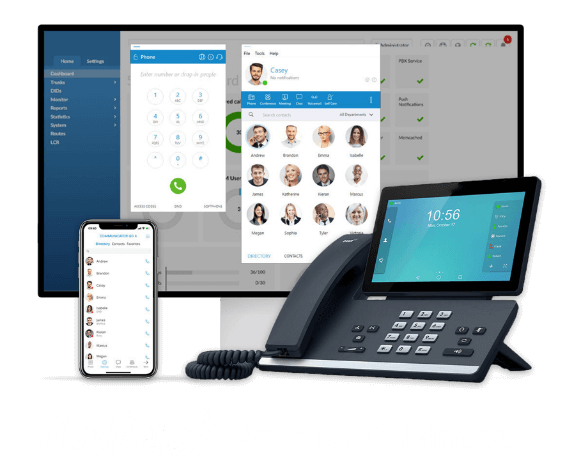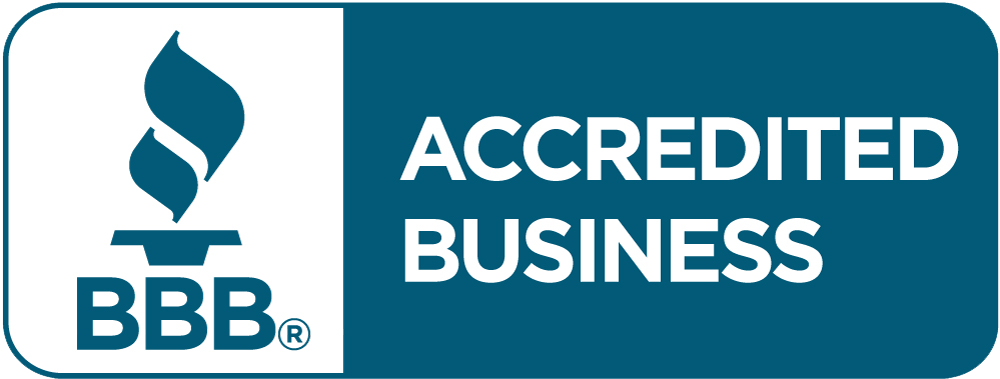Natural disasters like storms, hurricanes, and floods are unavoidable and can wreak havoc on businesses. Power outages, damaged infrastructure, and office closures are just a few of the consequences businesses face during such crises. One of the most critical aspects of business continuity is maintaining communication. Without a reliable communication system, businesses can lose valuable customers, face operational delays, and ultimately jeopardize their reputation.
This is where VoIP (Voice over Internet Protocol) and call forwarding become invaluable tools. Unlike traditional phone systems, VoIP provides businesses with the flexibility to maintain communication, regardless of physical location or disaster. Here's how VoIP and call forwarding can serve as a lifeline for businesses during natural disasters.
Why Traditional Phone Systems Fail During Storms
Traditional phone systems, such as landlines and on-premises PBX systems, are often tied to specific locations. This becomes a major limitation when faced with a disaster. Here's why:
- Reliance on Physical Infrastructure: Traditional phone lines are susceptible to physical damage. During a storm, downed telephone poles or damaged underground cables can render these systems inoperable. In fact, many landline services are completely cut off during natural disasters.
- Limited Flexibility: If your employees rely on desk phones in a physical office, they can't continue working if the office is closed, power is out, or travel is impossible. The inability to forward or redirect calls leaves customers unable to reach anyone.
- Difficult to Scale: Traditional phone systems are often not easily scalable, especially during an emergency. Adding new lines or rerouting calls requires manual intervention and often lengthy setup processes.
In short, traditional phone systems are tied to a specific location, leaving businesses highly vulnerable in an emergency.
How VoIP and Call Forwarding Ensure Uninterrupted Customer Service
Unlike traditional phone systems, VoIP operates over the internet, making it much more resilient during natural disasters. Here's how VoIP and call forwarding can keep your business operational:
- No Dependency on Physical Infrastructure: Because VoIP uses the internet rather than traditional phone lines, it's not affected by physical infrastructure damage. Even if power lines go down, VoIP services can still function as long as there's an internet connection, whether that's through mobile data, satellite internet, or another form of connectivity.
- Easy Call Forwarding: With VoIP, you can easily forward calls to any device, whether it's a mobile phone, another office location, or even remote workstations. This ensures that your customers can always reach you, even if your main office is unavailable. For instance, if your business experiences a power outage, you can reroute incoming calls to employees working from home, ensuring customer inquiries are answered.
- Remote Access: VoIP systems allow employees to access business phone lines from virtually anywhere. Employees working from home, on the road, or at a disaster recovery site can still make and receive calls as if they were in the office. This remote accessibility is especially important in maintaining communication during severe weather events when employees may be forced to work from alternative locations.
- Scalable & Flexible: VoIP systems are highly flexible. You can quickly scale the system by adding new lines or rerouting calls to additional team members without the need for extensive technical work. During a disaster, it's crucial that your communication system can adapt quickly to changing needs. VoIP systems also allow you to adjust call routing in real time, sending calls to the most appropriate team member based on availability.
- Voicemail and Virtual Receptionist: In addition to call forwarding, VoIP systems often include features like voicemail to email and virtual receptionists, ensuring that even if your business is down temporarily, customers are not left without support. A voicemail-to-email system can send voice messages directly to an inbox, allowing employees to review customer inquiries as soon as possible.
VoIP and Call Forwarding Are Game-Changers for Business Continuity
In times of crisis, maintaining open communication with your customers is critical. While traditional phone systems can easily fail during natural disasters, VoIP systems with call forwarding capabilities ensure that your business can stay connected no matter the circumstances.
At TotalBC, we provide businesses with advanced VoIP solutions and call forwarding services that are designed to keep your business running even during the most severe disruptions. Our scalable, flexible, and reliable systems ensure you stay connected, no matter where you or your employees are.
Contact TotalBC today at 866-673-8682 or schedule a consultation to learn more about how our VoIP solutions can be a lifeline for your business during natural disasters and other emergencies.
Ensure your business is always reachable—no matter what the weather brings.








